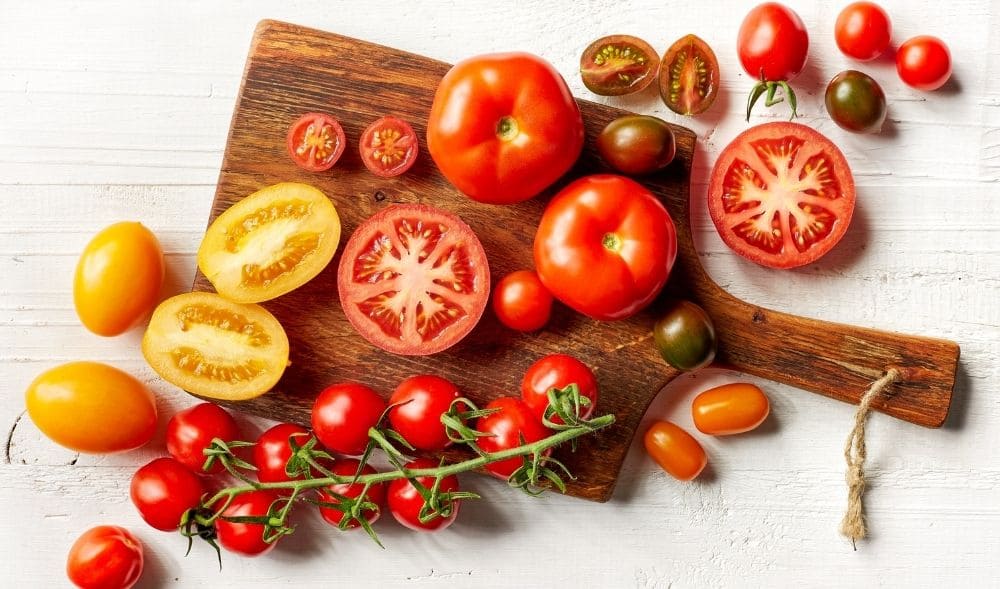
Superfood for your skin: tomatoes
Tomatoes can help to lower a high cholesterol level and prevent arterial calcification. This article lists the benefits of tomatoes.
In brief: the benefits of tomatoes
Tomatoes can benefit us in many ways. These points are scientifically proven:
- Tomatoes are good for intestinal health
- improve vision
- are good for the hair, skin and teeth
- can lower blood pressure
- strengthen bones
- can prevent bladder cancer and urinary infections
- reduce the cholesterol level
Lycopene helps to prevent cancer
Tomatoes contain the secondary plant substance lycopene. Several studies have shown that this can prevent cancer. It can also strengthen the immune system. What’s interesting is that lycopene becomes fully effective only when tomatoes are chopped up. The effectiveness increases when they are heated. So the superfood should mainly be eaten cooked to take advantage of the positive effects of lycopene. So you could eat tomatoes as pasta sauce, ketchup or tomato puree. When buying tomatoes, choose ones that are already ripe. As these contain much higher lycopene than unripe tomatoes.
Tomatoes for natural skin protection
Alongside the benefits already mentioned, lycopene also has an antioxidative effect that has a positive effect on many areas of the body. The sunlight causes free radicals to be absorbed by the body. They are then deactivated by various secondary plant substances. This protects skin cells against being destroyed. The main thing is not to forget your sun cream when the sun is shining.
Strengthening the immune system
Tomatoes are also rich in vitamin C, which is vital for a well functioning immune system. It protects the body against various dangers, such as bacteria, germs or infections. So it’s sensible to include tomatoes as an integral part of your diet and eat them regularly. This provides ideal natural health prevention. The superfood helps to boost the body’s own fat-burning and many important metabolic processes. That’s why tomatoes are an important part of various diets, as they contain only 18 kcal per 100g.





